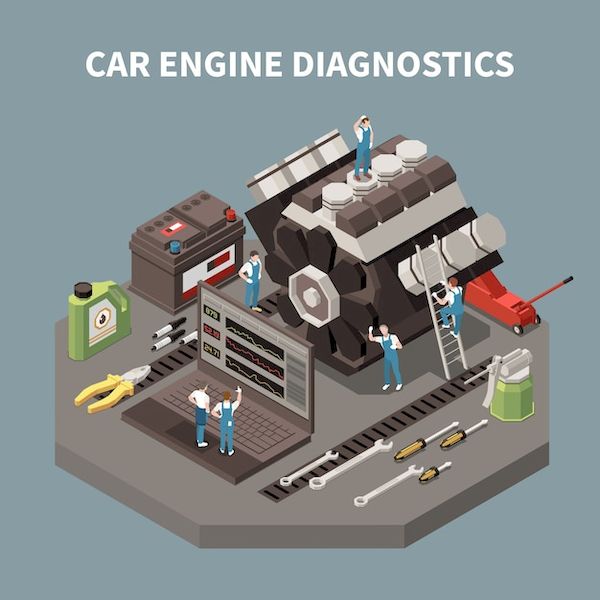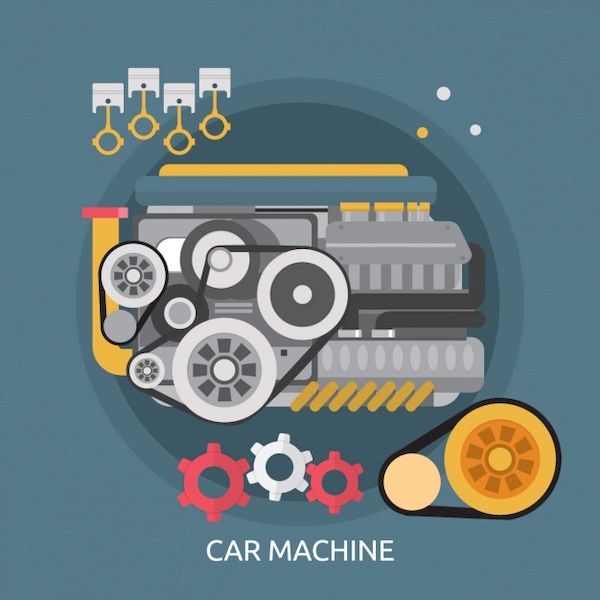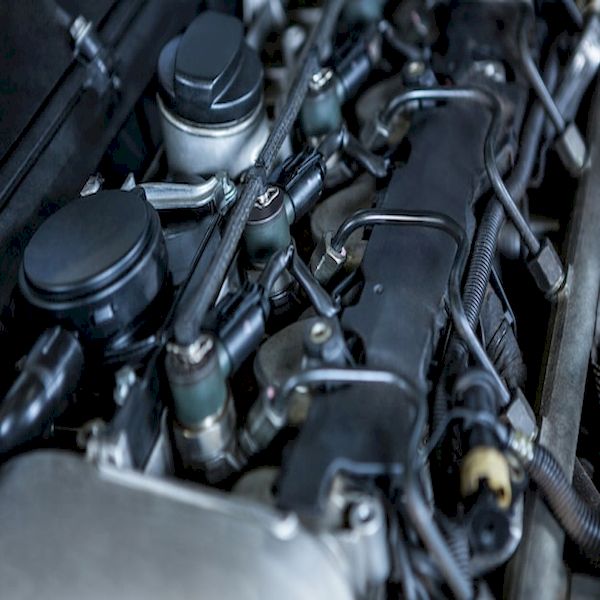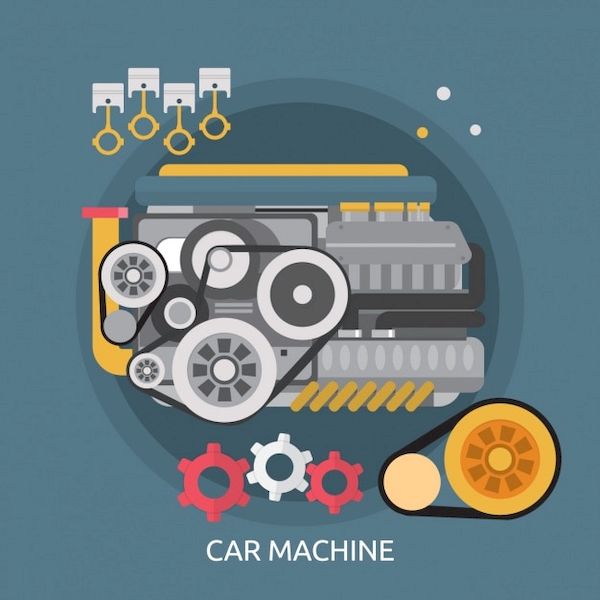Introduction
Every vehicle owner dreads the sight of oil spots on the driveway or garage floor, as it often signals an oil leak in engine components. An oil leak can lead to significant issues ranging from decreased engine performance to catastrophic engine damage if not promptly addressed. In this article, we will explore the causes of oil leaks in engines, the signs to watch out for, potential consequences, prevention methods, and solutions for repairs or maintenance. Understanding these aspects is crucial for any vehicle owner looking to maintain their engine’s health and performance.

What Causes an Oil Leak in Engine?
Understanding the root causes of an oil leak in engine components can help vehicle owners take proactive steps to prevent leaks or identify the problems quickly when they emerge. Several factors contribute to oil leaks, including:
1. Gasket and Seal Failures
Gaskets and seals are utilized throughout the engine to ensure that oil only flows where it is intended. Over time, these components can degrade due to heat, pressure, and age, causing them to fail. Common areas where gasket and seal failures occur include:
- Oil Pan Gasket: This gasket protects the oil pan where oil accumulates. If it deteriorates, it can lead to a significant leak.
- Valley Pan Gasket: Prominent in engines with a “V” configuration, this gasket can leak oil between the cylinder heads and engine block.
- Front and Rear Main Seals: These seals prevent oil from leaking out of the front and rear of the crankshaft. A failure here often results in considerable oil loss.
2. Oil Filter Issues
The oil filter plays a critical role in maintaining engine oil cleanliness. If an oil filter is improperly installed or becomes clogged, it can lead to oil leaks. Additionally, using the incorrect oil filter for your vehicle can compound the problem.
3. Oil Drain Plug Problems
The oil drain plug is essential for oil changes, and if it is overtightened or under-tightened during an oil change, it can cause oil leaks. Over time, the washer or seal around the drain plug can also wear down, resulting in leaks.
4. Engine Wear and Tear
As engines age, wear and tear can create gaps or enlarge existing ones. Components such as piston rings, valve guides, and timing cover can develop cracks or become misaligned, eventually leading to oil leaks.
5. Temperature and Pressure Changes
When an engine runs, it experiences fluctuations in temperature and pressure. These changes can push oil through small gaps or cracks that may not leak at lower temperatures and pressures. This scenario often occurs in older engines with wear or damage.
6. Environmental Factors
Excessive heat, humidity, and harsh driving conditions can contribute to oil leaks in engines. Corrosive materials from road salt or other environmental factors can wear down engine components, including gaskets and seals, leading to leaks.
Signs of an Oil Leak in Engine
Being aware of the signs of an oil leak can help vehicle owners react promptly to prevent further damage. Here are some common indicators that you might have an oil leak in engine components:
1. Oil Puddles
The most apparent sign of an oil leak is the presence of oil puddles or spots on the ground where your vehicle is parked. The color of the oil may range from light amber to black, depending on its age and condition.
2. Low Oil Levels
If you frequently find your oil levels dropping, especially between oil changes, this may indicate an oil leak. Regularly checking your oil level can help you identify this issue early.
3. Warning Lights
Many modern vehicles are equipped with sensors that monitor oil pressure. If the oil pressure light illuminates on your dashboard, it can signify that there is not enough oil circulating, possibly due to a leak.
4. Burning Oil Smell
An oil leak can allow oil to drip onto hot engine parts, producing a burning smell. If you notice a burnt oil odor while driving, it’s crucial to investigate further.
5. Engine Smoke
If oil drips onto hot engine components, it can create smoke. If you see smoke coming from the engine bay, you should stop the vehicle immediately and check for oil leaks.
6. Engine Performance Issues
Oil leaks can lead to insufficient lubrication, resulting in a decrease in engine performance. If you notice engine misfires, increased noise, or sluggishness, an oil leak could be the underlying issue.

Consequences of an Oil Leak in Engine
Ignoring an oil leak in engine components can lead to severe and costly problems. Here are some potential consequences:
1. Engine Damage
Oil is essential for lubricating engine components. If a leak leads to low oil levels, friction can increase, resulting in overheating and significant engine damage.
2. Reduced Performance
A consistent oil leak can hinder the engine’s ability to operate effectively, leading to reduced fuel efficiency and overall performance.
3. Environmental Impact
Excess engine oil leaking onto the ground can pollute the environment, leading to potential fines for improper disposal and harm to wildlife.
4. Fire Hazard
Oil leaking onto hot engine surfaces or exhaust components can create a fire hazard, putting you and your vehicle at risk.
5. Costly Repairs
Repairing an oil leak can range from a simple gasket replacement to a complete engine overhaul, depending on severity. The longer you wait to address an oil leak, the more costly the repairs will typically become.
Prevention of Oil Leak in Engine
Preventing an oil leak requires regular maintenance and attention to detail. Here are some preventive steps vehicle owners can take:
1. Regular Oil Changes
Keeping a regular schedule for oil changes is crucial. This not only ensures that your engine runs smoothly but also provides an opportunity for mechanics to inspect engine components for wear and tear.
2. Monitoring Fluid Levels
Regularly check your oil levels using the dipstick and look for changes in color or consistency. If you notice a decrease in oil levels, investigate potential leaks.
3. Engine Inspections
Routine engine checks can catch potential issues before they turn into significant problems. Look for signs such as leaking fluids, worn-out gaskets, or damaged seals.
4. Use Quality Products
Using high-quality oil and filters can extend the life of your engine and prevent leaks. Ensure that you are using fluids and filters that meet your vehicle’s specifications.
5. Garage and Parking Care
Be aware of where you park your vehicle. If you regularly park in an area exposed to environmental hazards, consider using preventative measures to protect your vehicle’s undercarriage.

Solutions for an Oil Leak in Engine
If you’ve identified an oil leak in engine parts, prompt action is essential. Here are common solutions for addressing this issue:
1. DIY Fixes
For minor leaks, DIY fixes such as replacing gaskets or seals can be effective if you have experience and knowledge. Always consult the owner’s manual for proper procedures.
2. Professional Inspection
Switching to a qualified mechanic or automotive technician for inspection and repair ensures that you address the issue effectively. They can identify potential problems that may not be obvious to the average vehicle owner.
3. Sealants
In some cases, oil leak sealants can be used as a temporary solution to reduce leaks. However, this should not be a permanent fix.
4. Complete Engine Overhaul
In cases where the damage is extensive, a complete engine overhaul may be necessary to restore the engine back to its optimal condition.
5. Regular Maintenance
Establishing a routine for engine maintenance can help catch potential oil leaks before they become significant. Regular oil changes, fluid checks, and inspections can all help maintain engine health.
Conclusion
An oil leak in engine components can have serious consequences if not addressed promptly, ranging from reduced performance to catastrophic failure. By understanding the causes, signs, and preventative measures, vehicle owners can ensure the longevity of their engines. Regular maintenance and inspections are crucial in mitigating risks associated with oil leaks.
Tags: automotive repair, engine maintenance, Oil Leak